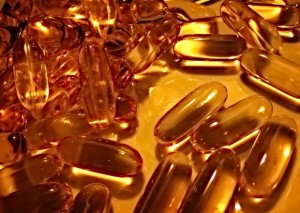Is Fish Oil Helpful in Kids with ADHD?
The simple answer is Yes, most likely. Please read details below.
 First, a brief explanation about fish oil.
First, a brief explanation about fish oil.
- Fish oil has been studied to determine benefits in cardiovascular disease and hyperlipidemia and many other medical conditions.
- Fish oil is found in fatty fish such as mackerel, tuna, salmon, sturgeon, mullet, bluefish, anchovy, sardines, herring, trout and menhaden.
- 5 ounces of any of these fish provides about 1 gram of omega-3 fatty acids.
- Krill Oil is also a source of omega- 3 fatty acids.
- Omega-3 fatty acids are essential in our bodies for many different things including anti-inflammatory effects as well as boosting brain and heart health.
- Two of the most commonly studied and most helpful omega-3 fatty acids are EPA and DHA.
Research is still ongoing and several studies have shortcomings and inconsistencies in research trials to date making it hard to make evidence based recommendations.
The following is what we know as of February 2015:
- Omega-3s found in fish oil that can be helpful are EPA (eicosapentaenoic acid) and DHA (docosahexaenoic acid). These are highly unsaturated fatty acids (HUFA).
- Omega-3 HUFA levels appear to be lower in individuals with ADHD compared with unaffected individuals. The reasons for this are unclear.
- It is well established that omega-3 HUFAs DHA and EPA limit neuroinflammation and whether this plays a role in helping ADHD is unknown.
- Several meta-analytic review studies have found that supplementing a child’s diet with EPA and DHA has a small to medium effect in improving clinical symptoms of ADHD.
- EPA may have greater clinical effect but it is likely that both EPA and DHA are important.
When considering purchasing fish oil supplements it is important to read the label!
- Look for the milligram (mg) amount of Omega-3 in the capsule/softgel.
- Look at the serving size since the mg on the label may be listed for 2 softgels or more.
- A standard 1000 mg fish oil provides around 300 mg of omega-3s.
- Since EPA may have a greater clinical effect in ADHD it is important to obtain a higher ratio of EPA to DHA if possible. The label needs to specify amounts of EPA and DHA.
For our Vegetarian/Vegan friends: A vegetarian source of Omega-3 is alpha-linolenic acid (ALA), which the body may convert to EPA and DHA. Dietary sources include walnuts and flax seed. Eating a diet high in omega-6 fats, those found in chips, fried foods, processed foods, and restaurant foods, may hinder this conversion. Common sources of plant oils containing the Omega-3 ALA fatty acid include walnuts, edible seeds, clary sage seed oil, algal oil, flaxseed oil, Sacha Inchi oil, Echium oil, and hemp oil.
Recommended Amounts of Fatty Acids as Omega-3* per age group per day
1-3 years -700 mg/d
4-8 years -900 mg/d
Males 9-13 years 1200 mg/d Females 9-13 years 1100 mg/d
14-18 years 1600 mg/d 14-19 years 1100 mg/d
19-30 years 1600 mg/d 19-30 years 1100 mg/d
* Dietary Reference Intakes for Energy, Carbohydrate. Fiber, Fat, Fatty Acids, Cholesterol, Protein, and Amino Acids (2002/2005).
If you need help with your own or your child’s ADHD then call us at: 864-305-1662


